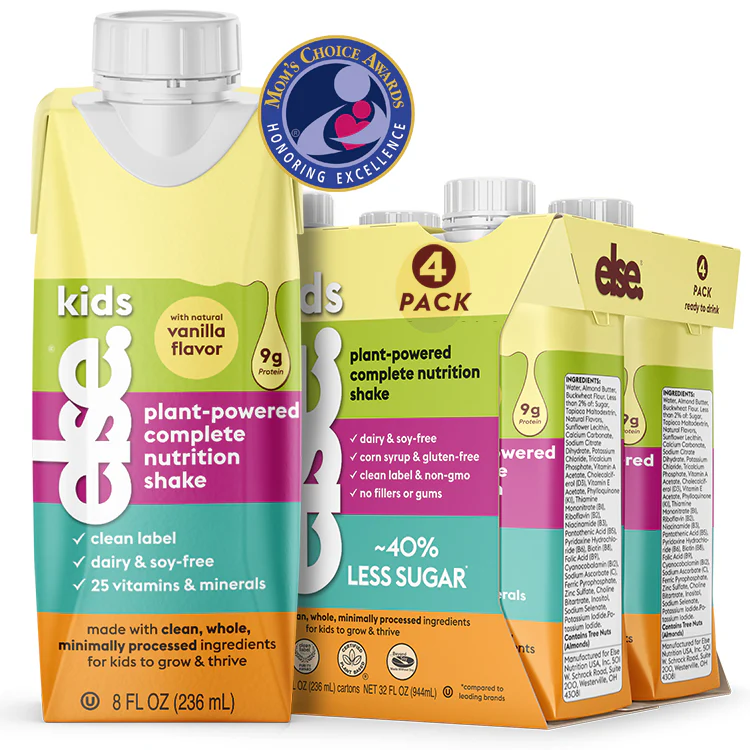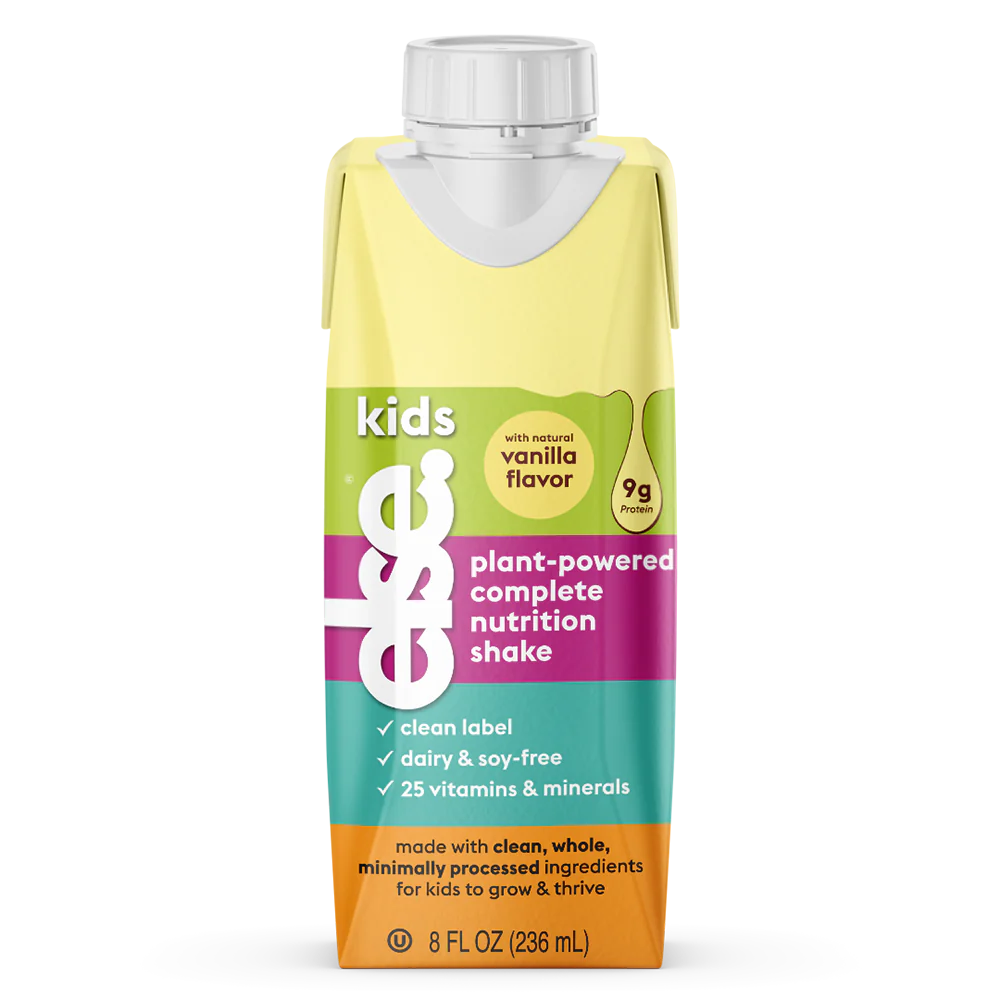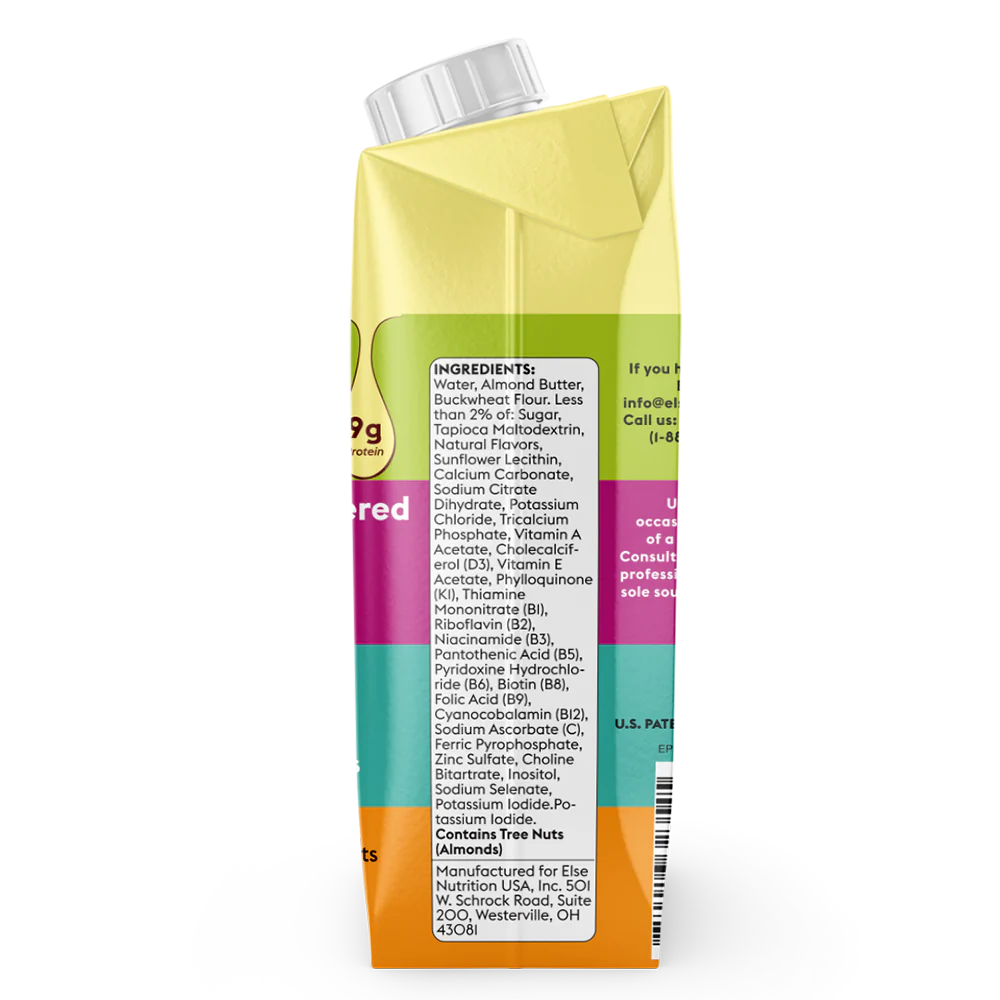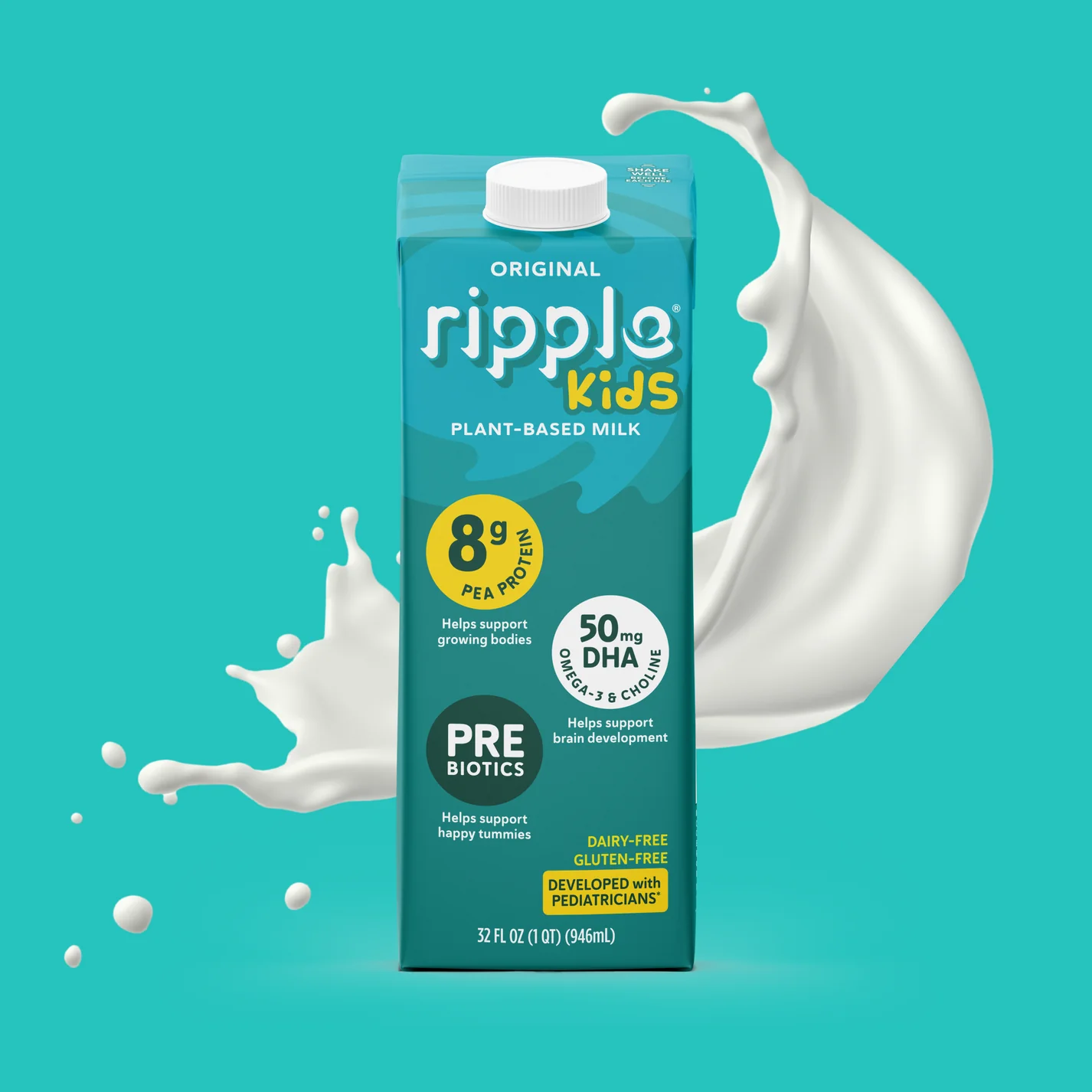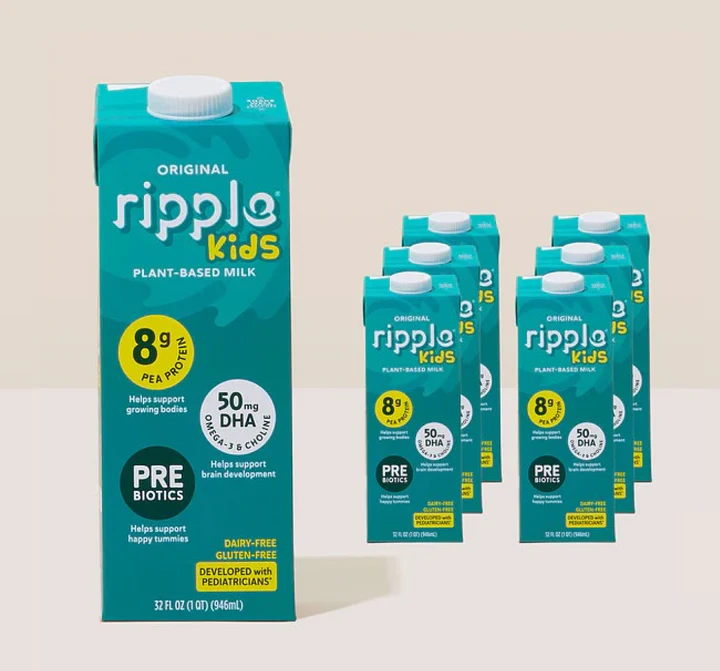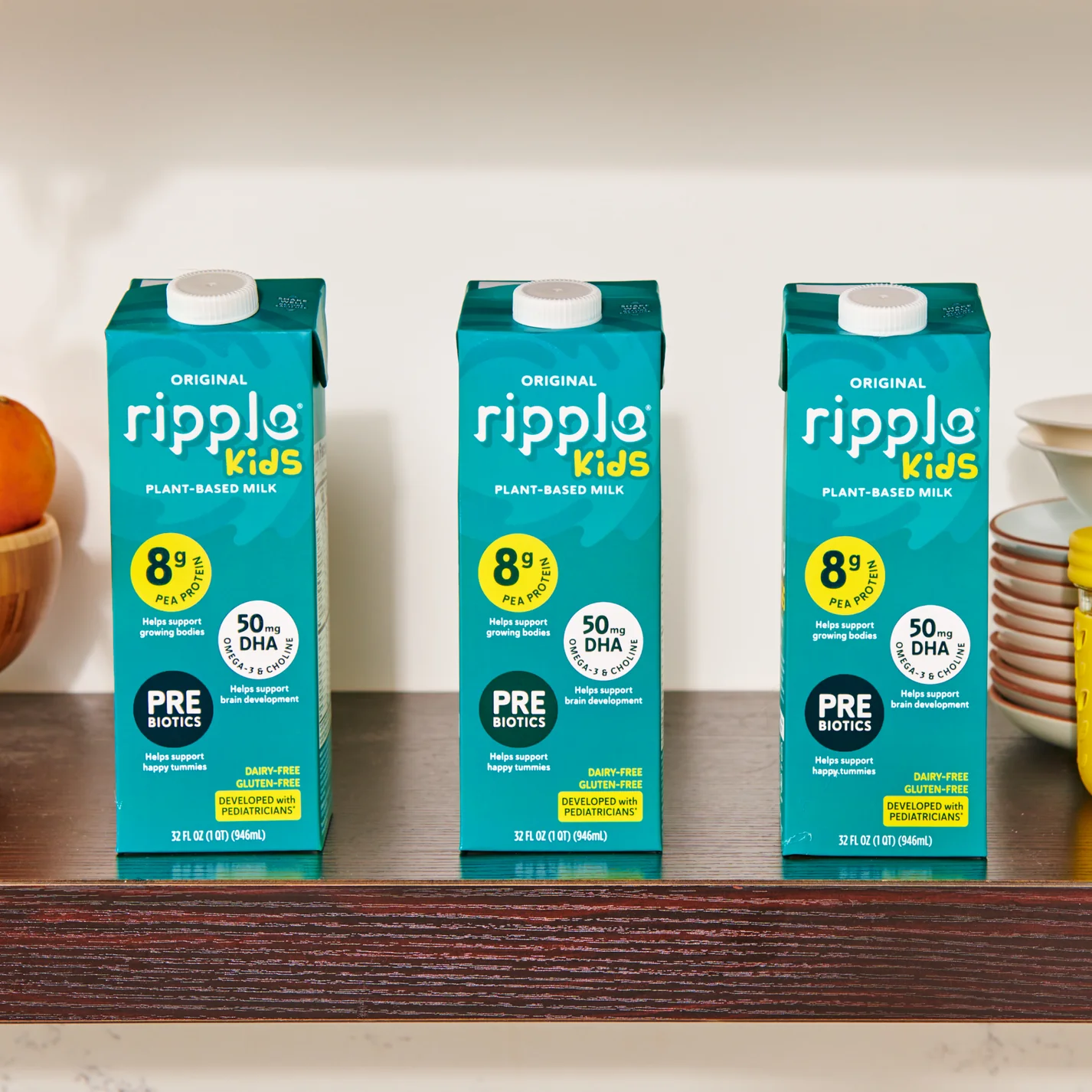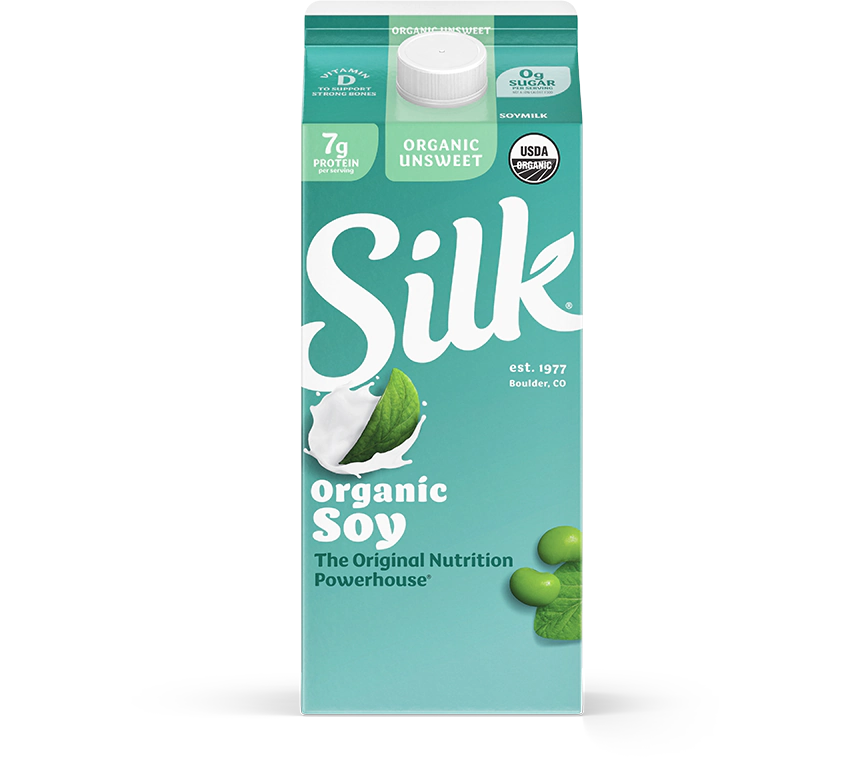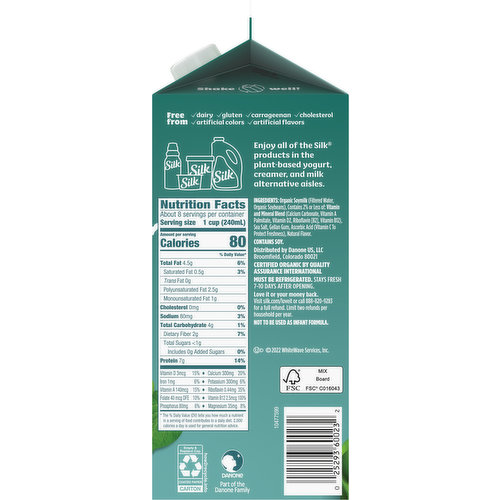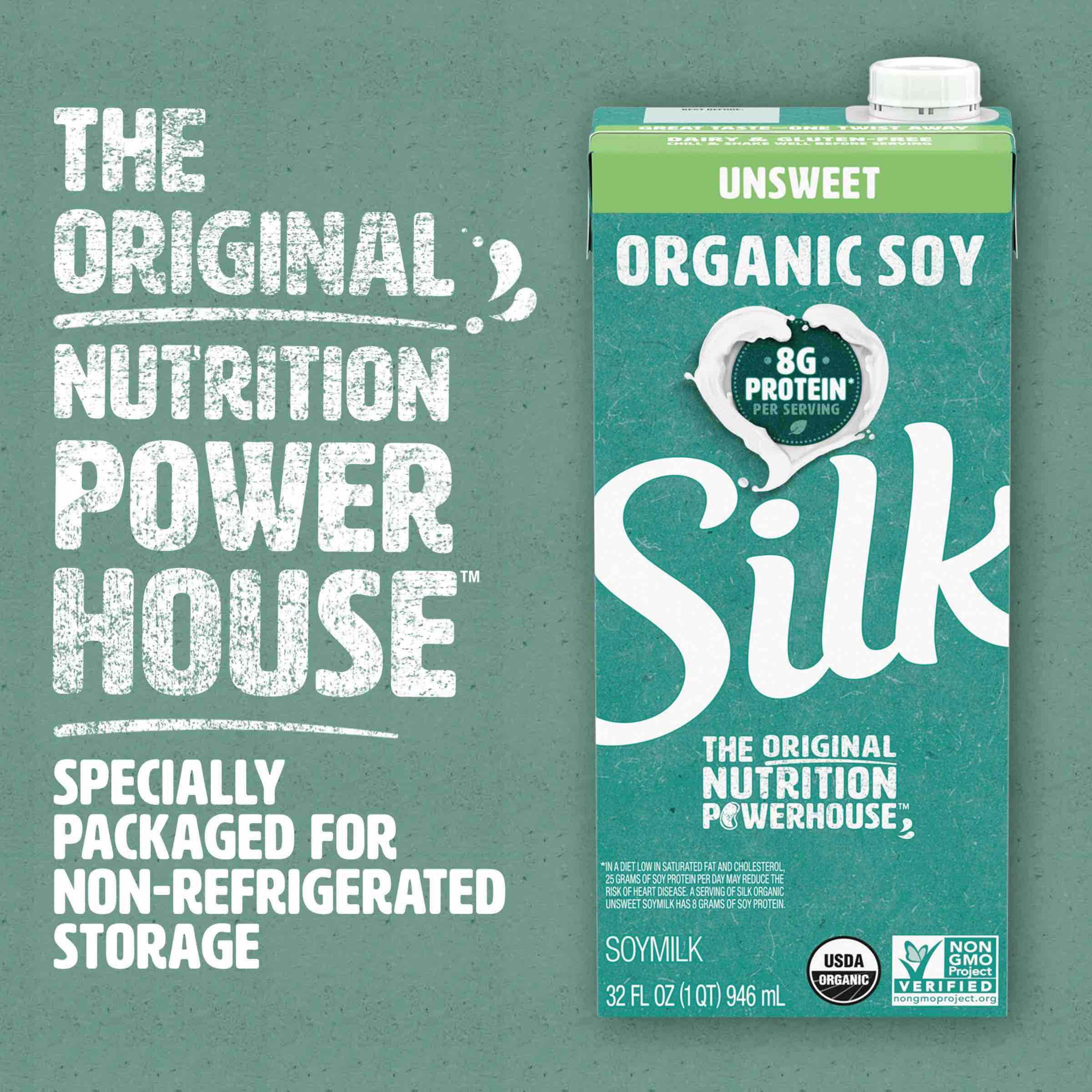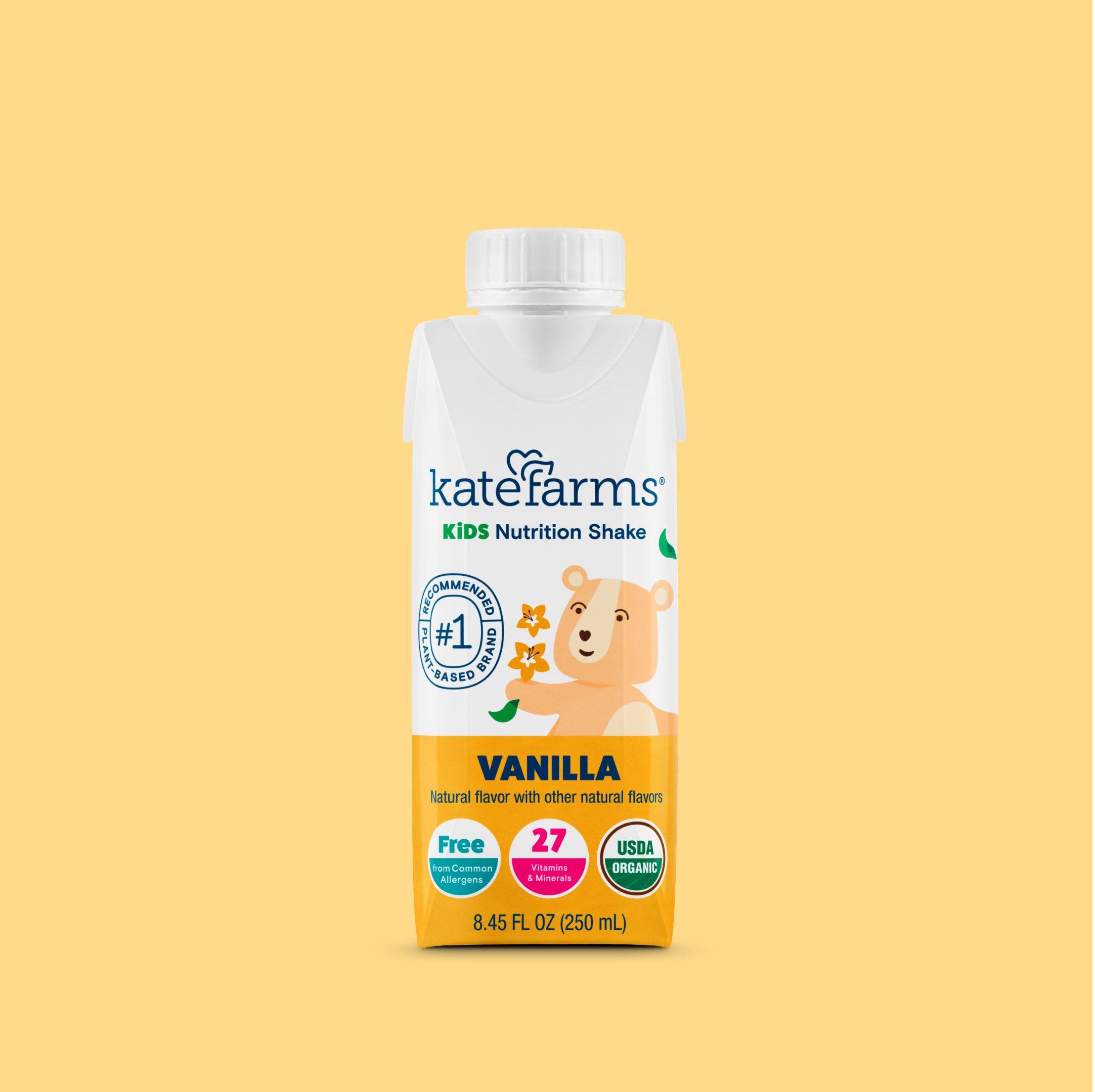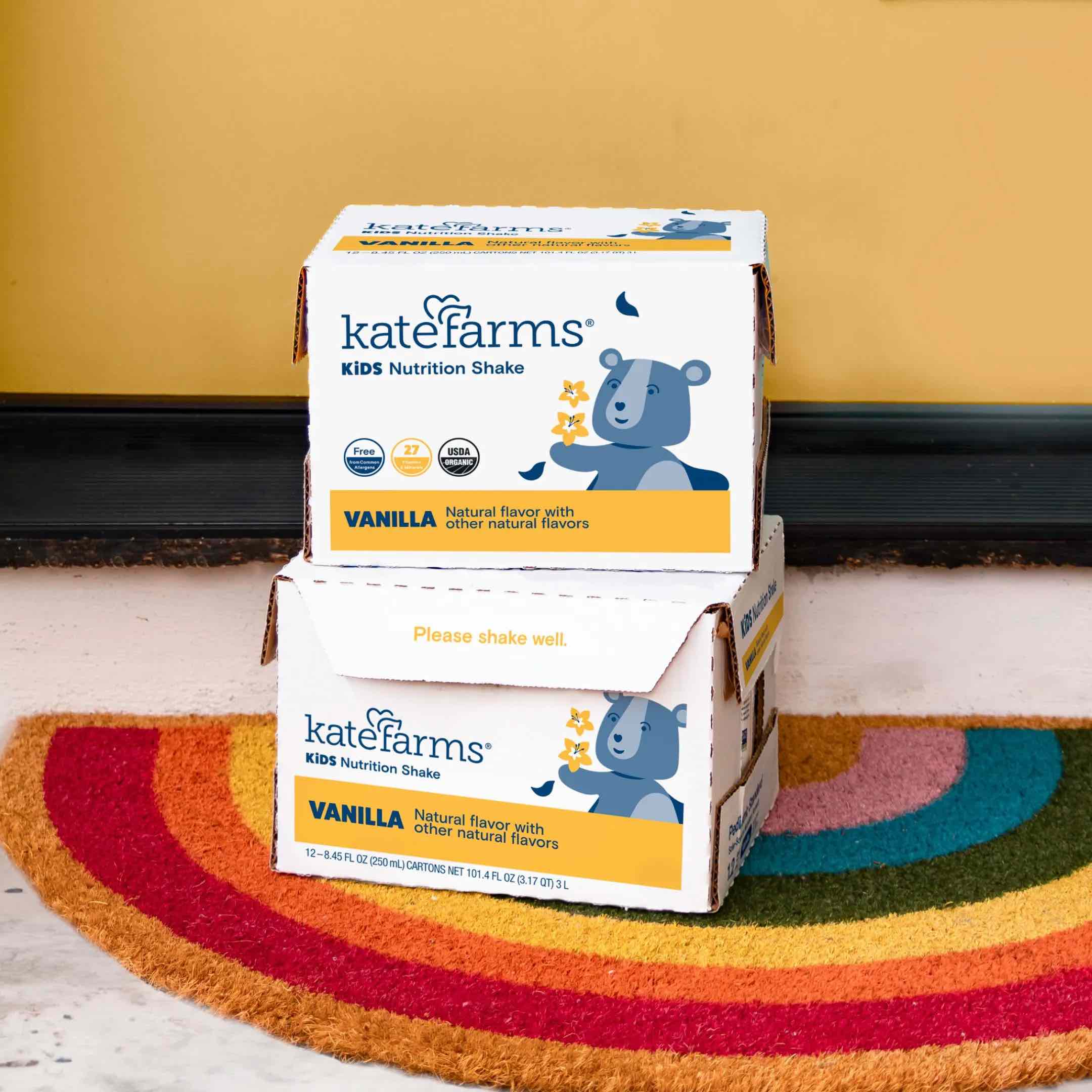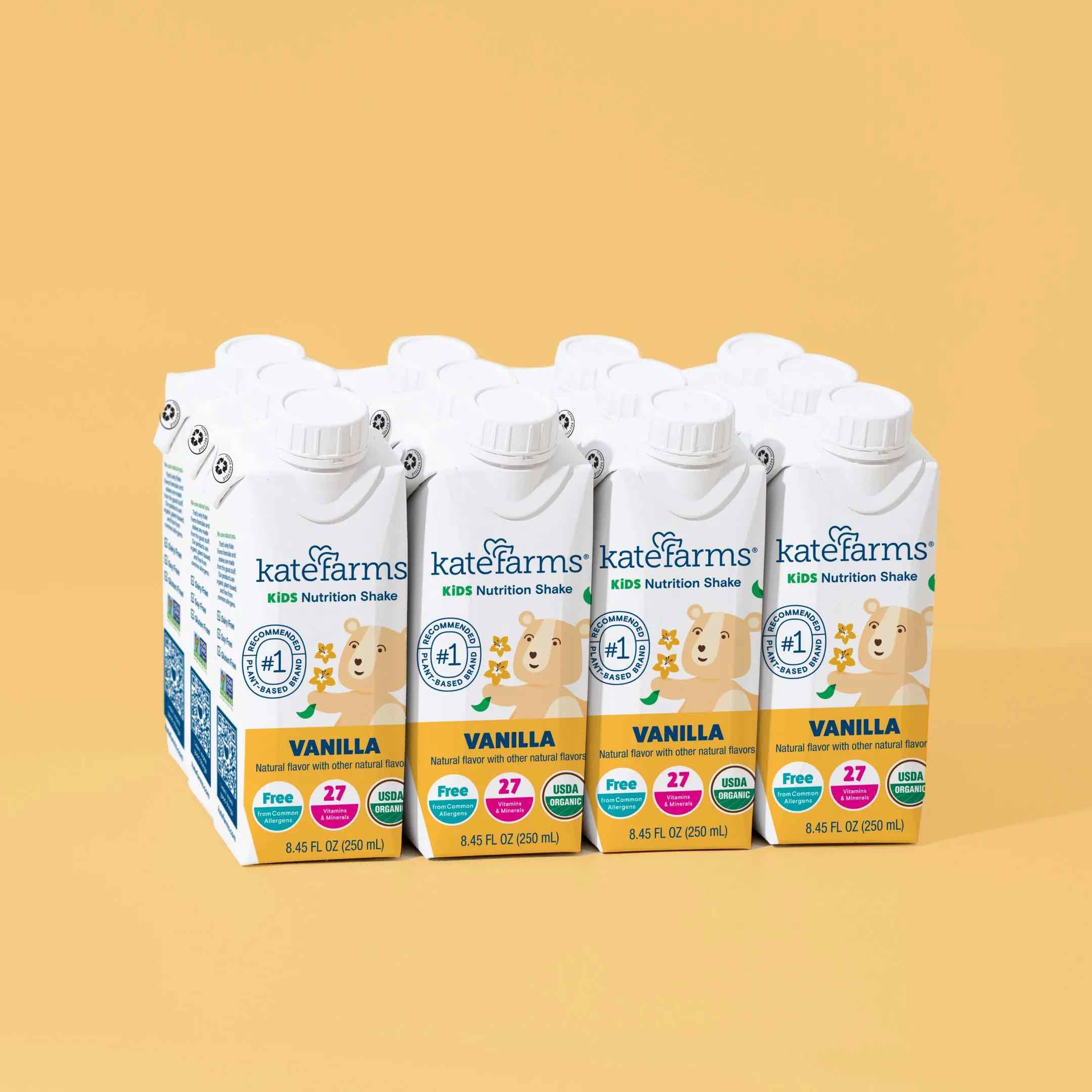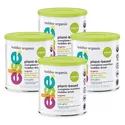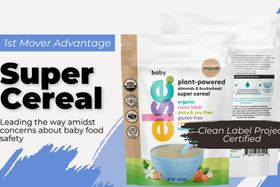4 Best Milk Alternatives for Kids With Cow's Milk Protein Allergies
Nourish your child's growth with the best milk alternatives for cow's milk protein allergies
Published November 27, 2024
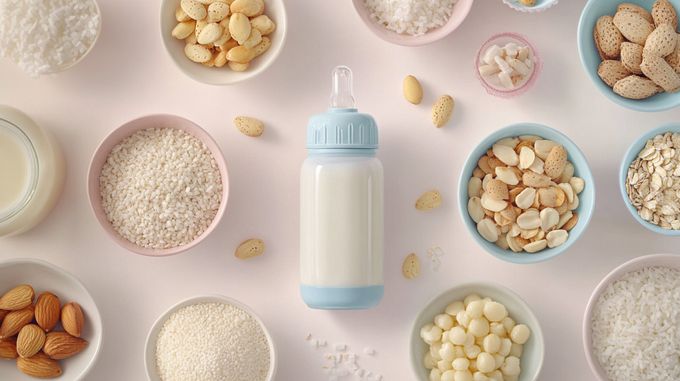
Welcoming a new baby into your family comes with countless joys and challenges; for some parents, navigating food allergies can feel overwhelming. Cow's milk protein allergy (CMPA) affects many infants, causing distress for both babies and parents.
This blog post will help you understand CMPA, its types, symptoms, and alternative nutrition options.
» Choose a gentle, nourishing milk alternative for CMPA
Our Pick: Best Milk Alternatives for Kids With CMPA
- Best overall milk alternative for kids with CMPA: Else Nutrition Plant Powered Protein Shake
- Best calcium-enriched milk alternative for kids with CMPA: Ripple Kids Plant Milk
- Best high-protein milk alternative for kids with CMPA: Silk Organic Unsweetened Soy Milk
- Best nutrient-dense milk alternative for kids with CMPA: Kate Farms Kids Nutrition Shake
What is a Cow's Milk Protein Allergy?
Cow's milk protein allergy (CMPA) is an immune system response to the proteins found in cow's milk. Unlike lactose intolerance, which is a digestive issue, CMPA involves the immune system's reaction to milk proteins.
This means that when a baby with CMPA consumes cow's milk protein, their body treats these proteins as harmful invaders, triggering an allergic response.
» Learn more about food allergies in babies
Types of Cow's Milk Protein Allergies
There are three primary types of CMPA, each with distinct characteristics:
- IgE-Mediated CMPA is the most immediate and potentially severe form of the allergy. Symptoms typically appear within minutes to two hours after consuming cow's milk protein. This can cause food-induced anaphylaxis, which can be life-threatening.
- Non-IgE Mediated CMPA has symptoms that mimic lactose intolerance. You might notice issues like diarrhea, abdominal pain, flatulence, and even bloody stools. These reactions are typically delayed and less immediately dangerous but can cause significant discomfort.
- Food Protein-Induced Enterocolitis Syndrome (FPIES) is a unique type of allergic reaction specifically affecting the gastrointestinal tract. It usually develops in the first six months of life, particularly in formula-fed infants, and can cause severe digestive symptoms.
» Discover the signs that formula isn't right for your baby
4 Best Milk Alternatives for Kids With CMPA
Recognizing the Signs of CMPA
Identifying CMPA can be challenging, as symptoms vary widely. Here are some key signs to watch for:
Digestive symptoms such as frequent vomiting, diarrhea, constipation, or excessive gas
Skin reactions like eczema, hives, or general skin irritation
Respiratory issues, including wheezing, nasal congestion, or persistent cough
Behavioral changes such as excessive crying, irritability, or signs of abdominal discomfort
Failure to gain weight or grow at the expected rate
While these symptoms might suggest CMPA, consulting a pediatrician or allergist is crucial for a proper diagnosis.
» Check out the best nutritional shakes for picky eaters
How To Choose the Right Alternative
One common myth is that all plant-based milks are created equal. In reality, the nutritional content varies widely between different types. Some may be fortified with essential nutrients like calcium, vitamin D, and protein, while others may not.
When selecting a milk alternative for your child with a cow's milk protein allergy, consider these key factors:
- Soy or Pea Protein-Based Milk: These are excellent options as they provide comparable protein levels to cow's milk (around 7 grams per cup).
- Fortified Options: Look for milk alternatives fortified with calcium and vitamin D to support strong bones and overall health.
- Low-Sugar Choices: Opt for low-sugar or unsweetened milk alternatives to avoid excessive sugar intake.
Before making any dietary changes, it's essential to consult with your child's pediatrician. They can provide personalized advice based on your child's specific needs and any other allergies or sensitivities.
» Explore allergy-friendly nutritious formulas for your little ones
Looking Ahead with Hope
While your baby's CMPA may present challenges, it also offers a chance to deepen your understanding of your child's needs and become a more informed parent. Every step you take and every victory you achieve reflects the immense love and dedication you bring to parenthood.
Working closely with healthcare providers and remaining patient and observant can help you find the perfect alternatives to support your baby's growth and development. With the proper guidance and information, CMPA can be a stepping stone towards providing optimal care for your little one.
The content and advice provided in this article are for informational purposes only and are not a substitute for medical diagnosis, treatment, or advice for specific medical conditions.
Always consult a pediatrician to understand your child's needs. The article expresses the views of the article's editor.




